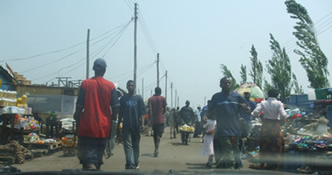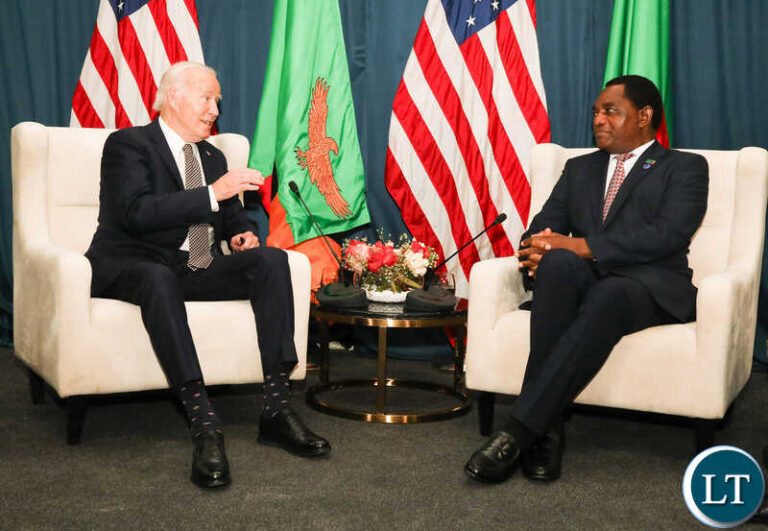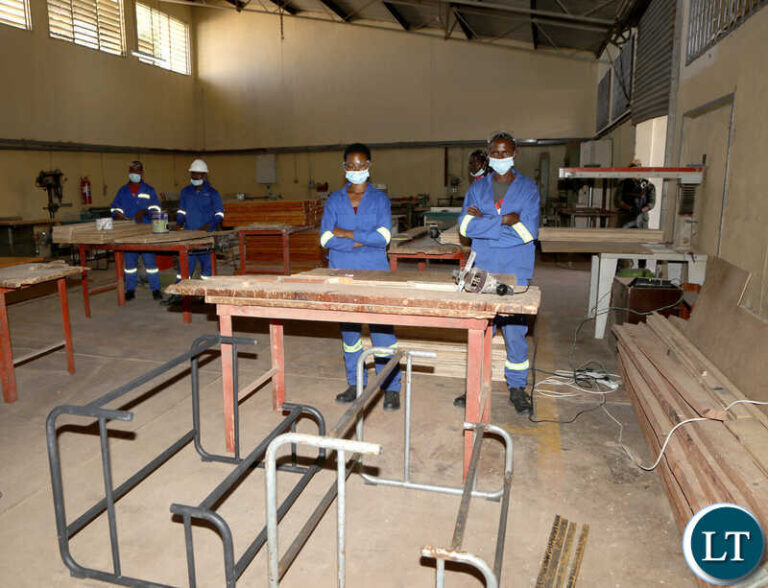The Zambia Chamber of Commerce and Industry (ZACCI) is appalled by pressing issues currently facing the commerce and industry sectors in the country.
The Chamber notes that these factors have made it increasingly difficult for local businesses to remain competitive while also affecting consumer prices and slowing down the national economy.
In a press statement dubbed “State of Commerce and Industry in Zambia Amid Current Challenges,” ZACCI president Anthony Kabaghe has called out the ongoing energy crisis, rising exchange rates, the rising cost of doing business, shortage of liquidity and the severe threat to food security posed by recent drought conditions as the most pressing issues affecting the growth of local businesses.
Mr Kabaghe said the energy crisis has had a profound impact on our industrial output and the broader economic landscape.
“Many businesses are grappling with inconsistent power supply, which disrupts production processes, increases operational costs, and ultimately threatens the sustainability of our enterprises. Coupled with the escalating exchange rates, limited and expensive capital, over regulation and licence requirements and multiple police check points with protracted procedures. These challenges have made it increasingly difficult for local businesses to remain competitive while also affecting consumer prices and slowing down the national economy,” he said.
In addition to these challenges, Mr Kabaghe said the drought has worsened food security concerns, with far-reaching consequences for the economy.
“Reduced agricultural productivity has led to increased food prices and scarcity, hindering the growth of industries that rely on stable agricultural supplies. In particular, the beef and cotton sector, which hold great promise, are now under threat due to the drought’s devastating impact on value chains,” he said.
Mr Kabaghe implored government to hasten the building of agriculture dams’ country-wide and unlock hurdles for private sector participation in actualizing a diversified energy mix while prioritising continental and regional inter-connectors for short term stability.
“In light of the foregoing, we pray the government remains focused on what is good for the nation by creating an enabling environment for the private sector to thrive. ZACCI would like to see consistent and predictable legislation, streamlined regulatory frameworks, flexible labour regulations that balance workers’ rights with business needs, sector specific legislation and strengthened institutions that will help government to redouble its efforts to enforce existing laws,” he said.
Mr Kabaghe said to boost tourism and optimise transport routes, it’s essential to eliminate unnecessary police checkpoints and replace them with a limited number of security checkpoints that don’t require traffic police officers, thereby streamlining travel and enhancing the overall experience by road users.
“Furthermore, we implore government to expedite the implementation of the Mineral Regulatory Commission. This body is crucial for ensuring that our mineral resources are managed effectively and contribute to national development. Also, we urge the government to expeditiously legislate the local content requirements that must be integrated into the operations of the Mineral Regulatory Commission,” he said.
Mr Kabaghe said the Mineral Regulatory Commission will ensure that local businesses benefit from the mining sector, fostering economic growth and job creation in Zambia.
“ZACCI believes the Public Private Dialogue Forum (PPDF) remains a good forum to enhance public and private sector dialogue on condition that the public sector should not play the role of the private sector through the PPDF. The PPDF is expected to provide a table for public and private players to resolve issues,” he said
Mr Kabaghe said the dialogue should extend to regional and district levels and not only at national level.
“Issues like land rates and council by laws can easily be resolved if dialogue at all levels was strengthened. Local private sector should be given the value it deserves by the public sector to deliver a private sector led economy,” he said.
Looking ahead, Mr Kabaghe said ZACCI is committed to launching two significant national programs in 2025.
These include the formalisation of the informal sector, an initiative ZACCI believes will mark the beginning of changing the structure of the Zambian economy which is predominantly informal. Formalization of the Zambian economy is crucial for its transformation and development as no country ever developed with a large informal sector.
“By reducing the size of the informal sector and transitioning businesses into the formal economy, Zambia’s economic development will be sped up. The initiative will boost the productivity and growth of enterprises, including artisanal and small-scale miners, by enhancing their access to finance, markets, and support services. Formalization offers significant economic benefits, including job creation, a wider tax base, increased financial inclusion and accelerated inclusive economic growth,” he said.
Mr Kabaghe also wants Government to undertake an annual state of industry and commerce survey which will be instrumental in gathering critical data on the current state of our industries and commerce. By understanding the challenges and opportunities faced by businesses, we will be better equipped to advocate for policies that support growth and innovation.
“This comprehensive analysis will also help identify sectors that require urgent attention and intervention, guiding both public and private sector strategies moving forward,” Mr Kabaghe said.
He said Zambia stands at a crossroads where immediate action and collaboration are essential for the resilience and growth of our commerce and industry. We call upon all stakeholders, including the government, to work together to address these pressing issues and build a more sustainable and prosperous future for Zambia “as we look to 2025.”
By Benedict Tembo
















